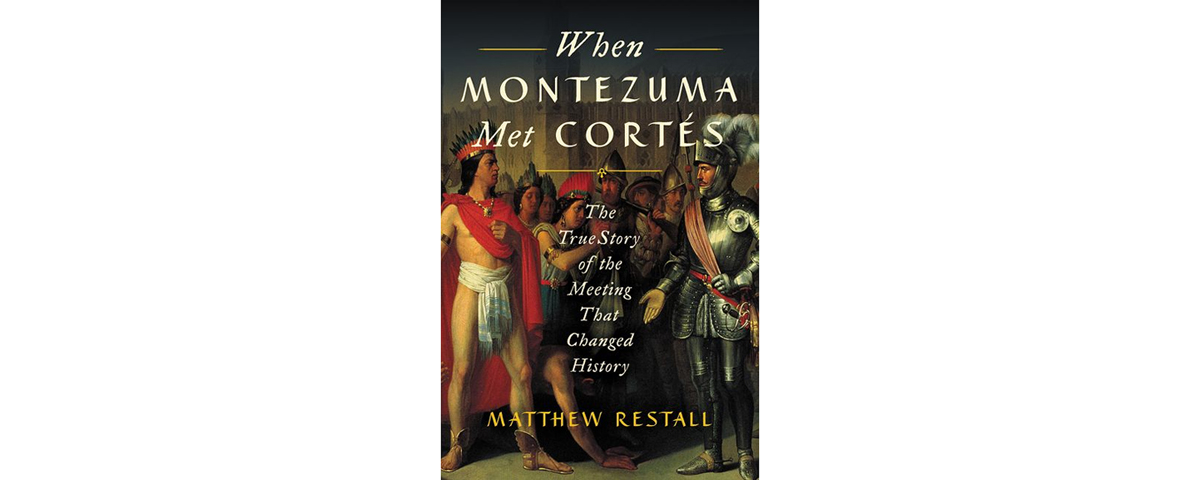When Montezuma Met Cortés: The True Story of the Meeting That Changed History, by Matthew Restall, Ecco, New York, 2018, $35
Historian Restall of Pennsylvania State University has delivered an exhaustively researched, forcefully argued and compelling reconsideration of the conquest of Mexico. When Montezuma Met Cortés is not strictly a military history—discussion of weapons and warfare makes up a very small part of the whole—it is, rather, a meditation on the discipline of history itself focused through a particular lens. History is encounter, Restall posits, and the discipline of history is the sum of all such relevant narratives. But some of those narratives become confused over time, while others are deliberately falsified, raising the question, How can we know what truly happened?
If the evidence is partial and/or untrustworthy, the historian must necessarily navigate the blurred lines between fact and fiction. The challenge becomes far greater when most everyone accepts the legend. The historian must again trace the connecting dots and sort out the probabilities to arrive at the truth. That is the approach Restall takes here, deconstructing what he views as the pervasive myths surrounding the Spanish conquest and Hernán Cortés in particular.
Focusing on the meeting between Montezuma and Cortés, Restall argues that the traditional narrative of a confused, cowardly or naive indigenous ruler kowtowing to European authority is a product of initial misunderstandings as well as continued fabrications on the part of self-interested Spaniards to justify their conquest. Similarly, the account of a morally degraded and barbarous people falling to the masterful diplomatic and military campaign of the invincible Cortés is simply a case of the victor writing the history.
The more one shifts his point of view, Restall notes, the more that is revealed—and the author radically shifts the traditional perspective of the Spanish/Aztec encounter. Montezuma is a wise, competent ruler of a sophisticated civilization manipulating the Spaniards, rather than the other way around. Cortés suffers a corresponding fall from his historical pedestal, as Restall sets out to dismantle the conquistador’s exceptionalism. Bumbling his way through a cultural context he does not understand, Cortés is in control of nothing and no one. Restall attributes his military victories to other captains, the ravages of smallpox and the aid of thousands of native allies. Cortés’ exceptionalism recedes to one tiny point: He survived. If Restall is correct, Cortés was surely exceptional in another way—as author of one of the most successful and enduring self-promotion campaigns in history.
—Justin Lyons





